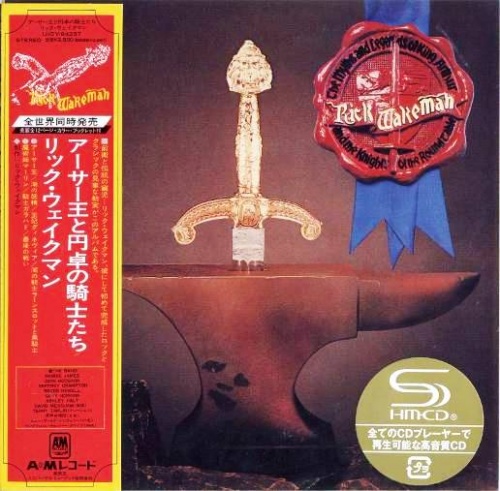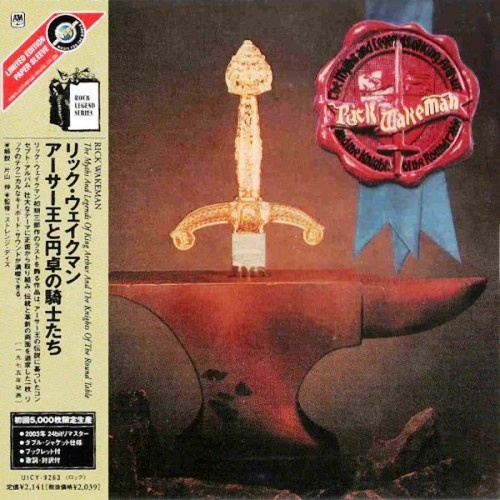Year: 1970 (CD 2003)
Label: Polydor Records (Europe), 065 604-2
Style: JazzCountry: Lanarkshire, Scotland (14 May 1943 - 25 October 2014)
Time: 48:02
Format: Flac Tracks 16/44,1 kHz
Size: 268 Mb
Шотландский мультиинструменталист, певец и композитор, этот музыкант являлся одним из основателей "Cream", и потому многие считают его героем рок-н-ролла. Однако при всей своей универсальности и работе не только в роке, но и в классике, блюзе и латино, сердце Брюса всегда принадлежало джазу. При этом импровизационное мастерство и оригинальное обращение с инструментом сделали его одним из величайших басистов двадцатого века, с которого брали пример такие личности как Стинг и Джако Пасториэс. Джек родился в Глазго 14 мая 1943 года, а детство и юность провел в разъездах вместе с родителями (кстати, тоже музыкантами) по США и Канаде, сменив аж 14 школ. Его формальное музыкальное образование закончилось в "Royal Scottish Academy Of Music", где он изучал композицию и виолончель, и откуда сбежал в 17 лет по причине нехватки финансов и отсутствия у профессора интереса к его идеям. Какое-то время Брюс путешествовал по Италии и Англии, зарабатывая на жизнь игрой на контрабасе в танцевальных джаз-бэндах, а в 1962-м впервые присоединился к серьезной группе, которая называлась "Alexis Korner's Blues Inc".
Спустя год вместе с несколькими коллегами Джек организовал "Graham Bond Quartet" (позже "Graham Bond Organisation"), попутно переключившись на бас-гитару. После двух не особо успешных альбомов Брюс, вечно ссорившийся с барабанщиком Джинджером Бейкером, перебрался к Джону Мэйоллу, а оттуда - к Мэнфреду Мэнну. Все эти альянсы оказались недолгими, и в 1966-м басист воссоединился с Бейкером и экс-гитаристом "Bluesbreakers" Эриком Клэптоном в супергруппе "Cream". За пару лет своего существования команда продала 35 миллионов альбомов и, находясь в зените славы, самоликвидировалась.
(rockfaces.ru/j/jackbruce.htm)
Стоит упомянуть музыкантов - известные люди: John McLaughlin - guitar (tracks 3-8); Dick Heckstall-Smith - soprano & tenor saxophone; Jon Hiseman - drums; ну и лидер этой группировки: Jack Bruce - double bass, session leader.
Jack Bruce remains one of the most enduring and fascinating figures of late 20th century popular music. By the age of eleven, he had already written his own string quartet, before eventually attending the Royal Scottish Academy of Music, from which he left at the age of seventeen having become disenchanted with his tutors and also due to the impoverished circumstances of his family. After a spate of travel he found his way to London, where he performed with a number of local dance bands and jazz groups, before joining Alexis Korner's Blues Incorporated in 1962. He quit Korner's group only a year later to join Graham Bond, an early pioneer of R&B and, more importantly, jazz-fusion. Bond's band also included John McLaughlin and Ginger Baker, and became one of the most seminal British groups (along with John Mayall's Bluesbreakers) of the early to mid 1960's. But it wasn't until 1966, when he was asked by Ginger Baker on Eric Clapton's bequest to join Cream that he found his true calling, where for the next two and a half years rock's first power trio racked up sales of some 35 million albums, including sell out tours across Europe and America. But in the months before Cream finally imploded in 1968, Bruce booked some time at IBC Studios in London, in hope of fulfilling his dream of making a jazz album with some of his previous and most prestigious colleagues.
Jack made a few calls, and before long he had Dick Heckstall-Smith (ex Graham Bond Organisation) on saxophone, drummer Jon Hiseman, and guitarist John McLaughlin. As Jack explained, "Because of the success of Cream I had the ability to go into the studio and record an album of jazz-based material. The compositions I chose to record were mainly those I'd written when I was eleven years old." Now this critic can't speak for anyone else, but I haven't met too many people who've told me that the inspiration behind their latest creation was based on work they'd written before they were capable of procreating. Or perhaps Bruce was one of those wunderkinds who was just a few years ahead of natural evolution. Who knows.
The almost free jazz of "Over the Cliff" is the opening track, and is all energized drumming and schizo-sax, certainly not the sort of thing one would have expected from the man who brought us such rock anthems as "White Room" and "Sunshine of Your Love." "Statues" is another experimental, sax dominated number, though by the 2:20 mark the band break out into something a little more structured and listener friendly, in that free jazz 1950's sort of way. In other words, if you're not into people such as Ornette Coleman, then this is probably not for you.
On the medley "Sam Enchanted Dick/Sam's Sack/Rills Thrills" the group sound like a quartet of cosmologists arguing over the nature of Dark Matter, each with their own point of view and theory as to what it is and how to find it. The saxophone on "Born to Be Blue" almost borders on atonal, but Heckstall-Smith doesn't stray too far from the scales of normality, always managing to prevent the composition from wandering off into the farthest reaches of the avant-garde universe.
"HCKHH Blues" sees the band in busy highbrow affair, with plenty of tight yet nervous drumming from Hiseman, a little neurotic saxophone by Heckstall-Smith, and some angst-ridden guitar courtesy of McLaughlin. What really stands out is Bruce on double bass, whose technique is so natural that even Charles Mingus would have been impressed. The same goes on "Ballad for Arthur," a relaxing piece, with Jack plucking at the bass strings, while McLaughlin finds his inner Zen.
The title track is perhaps the most accessible of the lot, and actually the most enjoyable. Yes it's busy, yes it's irritable and unnerving in places, but there's something about it which this listener in particular can't quite put his finger on. I guess like a lot of aspects in life. It's the things we like after all.
Recorded over three days, in August 1968, Things We Like wasn't released until 1970, once Cream was well and truly over, and Bruce had embarked on his solo career proper, beginning with the superb Songs for a Tailor in 1969. And although the record failed to chart, it was received well by the critics, who regarded it as an exceptional study in modern jazz. While many fans of his previous band must have thought "what's all this cerebral rubbish? Bring back Eric!"
Jack Bruce was a man of prodigious musical ability, and when he passed away in 2014, it was as if not just one star, but an entire constellation had suddenly gone out. Such was his contribution to popular music, a contribution which was as immeasurable as it was magnificent. He will never be forgotten.
(allaboutjazz.com/things-we-like-by-sacha-ogrady)
01. Over The Cliff (02:55)
02. Statues (07:35)
03. Sam Enchanted Dick (Medley): Sam's Sack/Rill's Thrills (07:28)
04. Born To Be Blue (04:25)
05. HCKHH Blues (08:58)
06. Ballad For Arthur (07:42)
07. Things We Like (03:37)
08. Ageing Jack Bruce, Three, From Scotland, England (05:19)




При желании можно посмотреть все мои публикации на сайте. Приятного прослушивания.
Жмём и смотрим (Click to see all of my posts)!https://es.d-ld.net/d48d9d79e9 - TurboBit
https://es.d-ld.net/5402596cc9 - KatFile
Новость отредактировал LynyrdSkynyrd - 11-11-2023, 23:25
Причина: Обновил ссылки и Описание.














1 комментарий